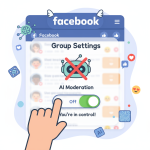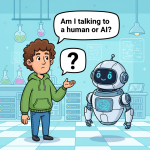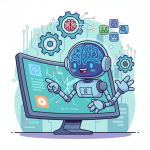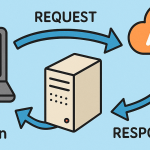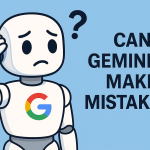Artificial intelligence has revolutionized industries and daily life over the last decade, but a question gaining traction in 2025 is: are people ditching AI? While AI adoption continues at record levels in many sectors, increasing numbers of individuals and organizations are stepping back from AI tools, raising concerns about privacy, ethics, creativity, and dependency. This blog explores the complex reasons behind the recent dip in AI enthusiasm, the groups most affected, and what it means for the future of AI technology.
Understanding the Trend: Is AI Usage Declining?
Despite exponential growth in AI capabilities and availability, recent surveys show a notable segment of users—especially content creators, educators, and everyday consumers—expressing AI fatigue or outright disengagement. Studies report that around 15-20% of certain audiences are consciously reducing or stopping AI tool usage. This countertrend challenges the narrative that AI is universally embraced and highlights areas requiring careful attention by innovators and policy makers.
Why Are People Ditching AI?
Privacy Concerns
Users are increasingly wary of how AI applications collect and use personal data. Rising awareness about data breaches and invasive tracking by AI-powered platforms drives many to opt-out or limit AI integration.
Ethical and Bias Fears
AI systems can perpetuate harmful biases if unchecked. Social activists, educators, and policy analysts highlight risks of unfairness and discrimination, motivating some to reject AI-generated content or decision-making.
Loss of Creativity and Authenticity
Content creators and educators fear that over-reliance on AI stifles human creativity and originality. There is concern about homogenized outputs and the diminishing role of human intuition.
Job Displacement Anxiety
In tech and non-tech fields alike, workers worry about AI replacing meaningful jobs, pushing some to disengage as a form of resistance or protest.
AI Fatigue and Overwhelming Choices
With AI tools saturating markets, many end-users feel overwhelmed or burnt out, leading to a natural decline in enthusiastic adoption.
Who Is Ditching AI?
Educators and Students: Skeptical of AI’s impact on learning integrity and critical thinking
Creative Professionals: Seeking authentic human expression over machine-generated content
Everyday Users: Concerned about privacy and digital well-being
Certain Tech Workers: Uneasy about job security amid automation trends
Policy Makers and Activists: Emphasizing regulation and ethical standards
How Businesses Are Responding
Companies are tuning their AI strategies to address these concerns by:
Enhancing transparency in AI data handling
Promoting human-in-the-loop AI models
Offering AI tools that support rather than replace creativity
Developing user controls to mitigate AI fatigue
Engaging in ethical AI governance and compliance
Looking Ahead: Will the AI Backlash Continue?
Despite pockets of resistance, AI innovation and adoption continue accelerating worldwide. However, the balance between hype and responsible usage is shifting. Users and organizations expect AI solutions that respect privacy, fairness, and human values. The coming years will likely focus on rebuilding trust through transparency, explainability, and ethical frameworks.
Actionable Tips for Stakeholders
Software Developers & ML Engineers: Build privacy-first, bias-mitigated AI solutions.
CEOs & CTOs: Implement ethical AI policies and train teams on responsible usage.
Educators: Incorporate AI literacy into curricula emphasizing critical thinking.
Marketers & Content Creators: Use AI as a collaborator, not a replacement.
Everyday Users: Stay informed about AI risks and use tools mindfully.
Frequently Asked Questions (FAQs)
1. Are people really ditching AI?
Yes, studies show 15-20% in certain demographics are scaling back AI usage due to fatigue, privacy, and ethical concerns.
2. What industries see the biggest AI pushback?
Education, content creation, and general consumer markets report the highest resistance to unchecked AI.
3. Is AI adoption overall declining?
No, AI adoption grows globally, but selective disengagement is rising in sensitive contexts.
4. How can AI be used responsibly?
Through transparent data practices, human oversight, bias mitigation, and user empowerment.
5. Will the backlash stop AI innovation?
Unlikely; it will guide more ethical, user-centered AI development.
Conclusion
Are people ditching AI? The answer is both yes and no. While AI remains a transformative force, significant segments of society are cautiously withdrawing due to legitimate concerns. This backlash is not rejection; rather, it is a call for AI that prioritizes ethics, transparency, and human dignity. For AI to thrive sustainably, innovators must listen, adapt, and collaborate with all stakeholders.
Call to Action:
To lead in the AI-driven future, organizations and individuals must champion responsible AI adoption. Start conversations today about ethical AI use, user trust, and balancing innovation with human values.
